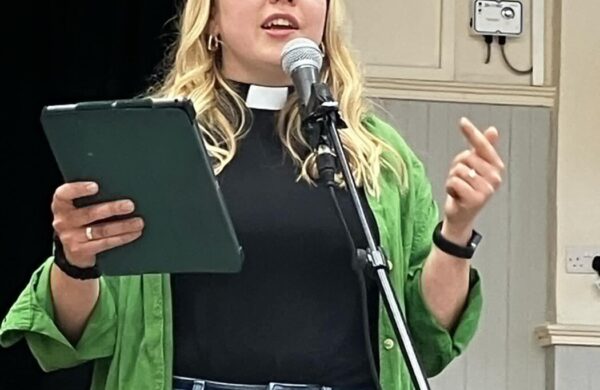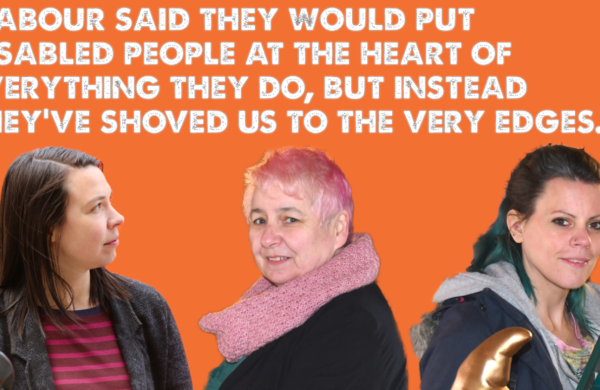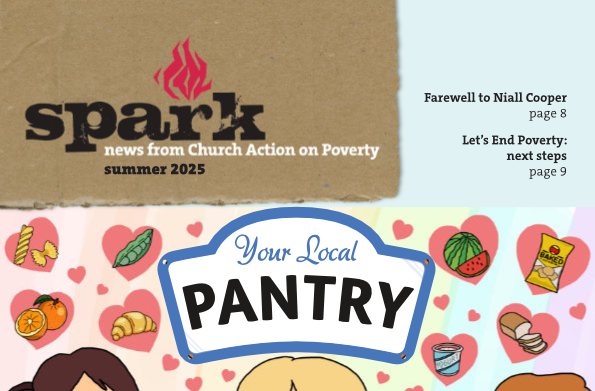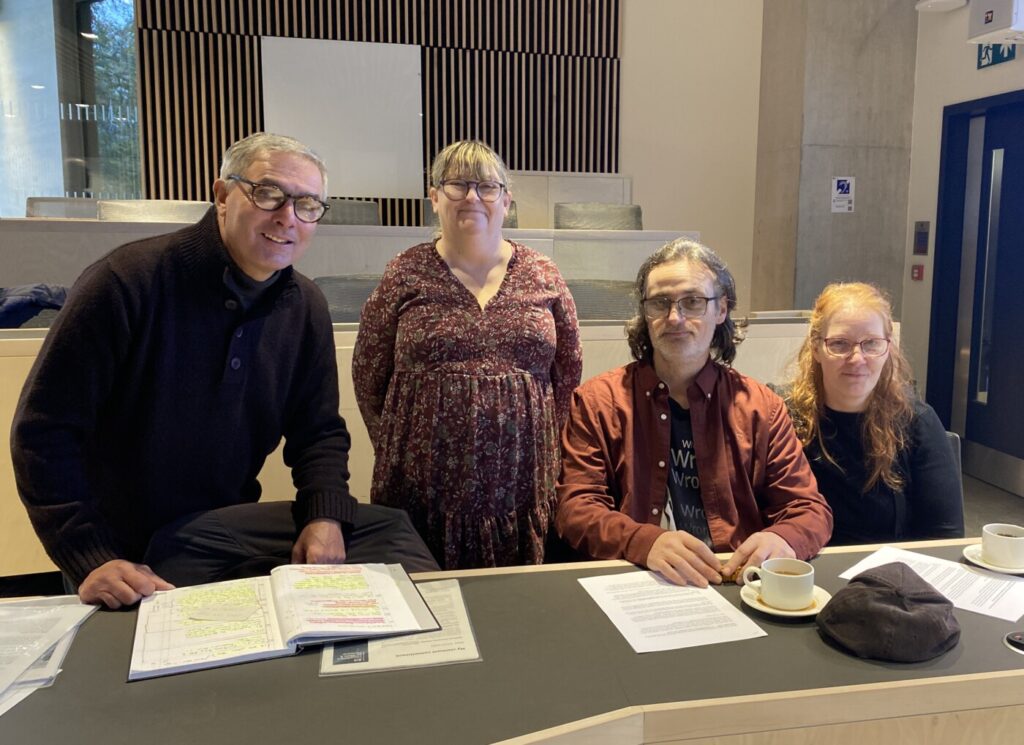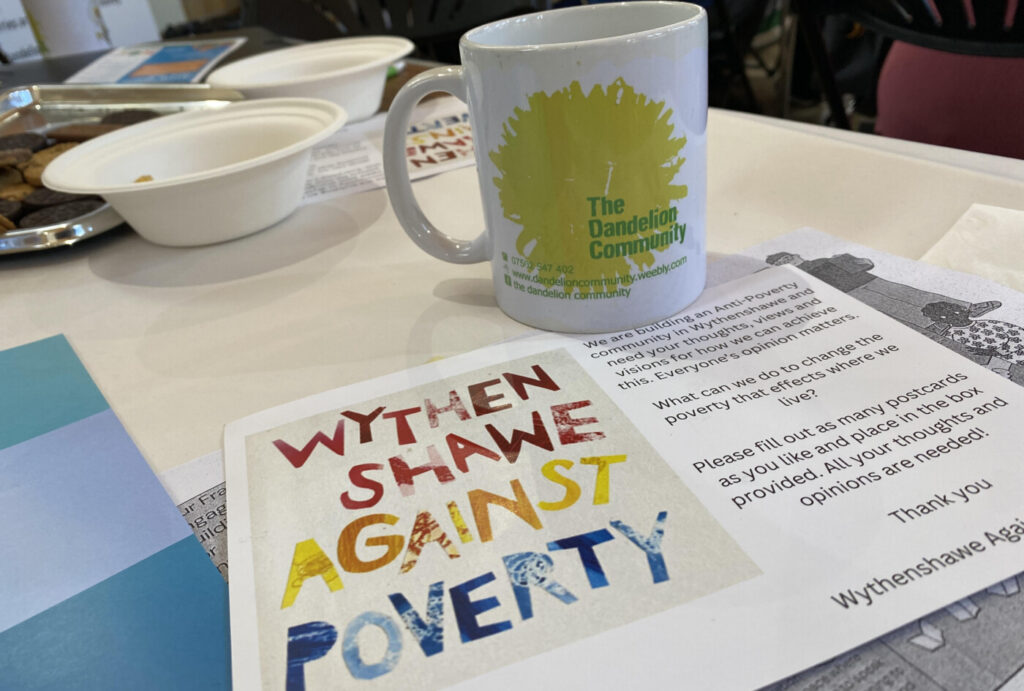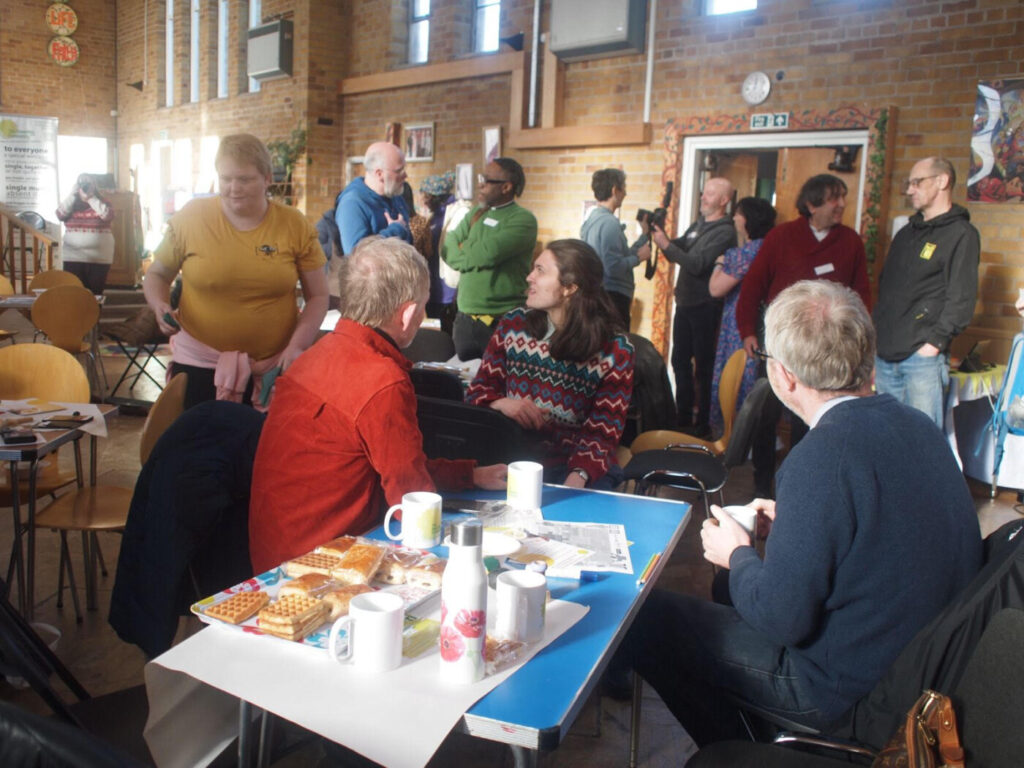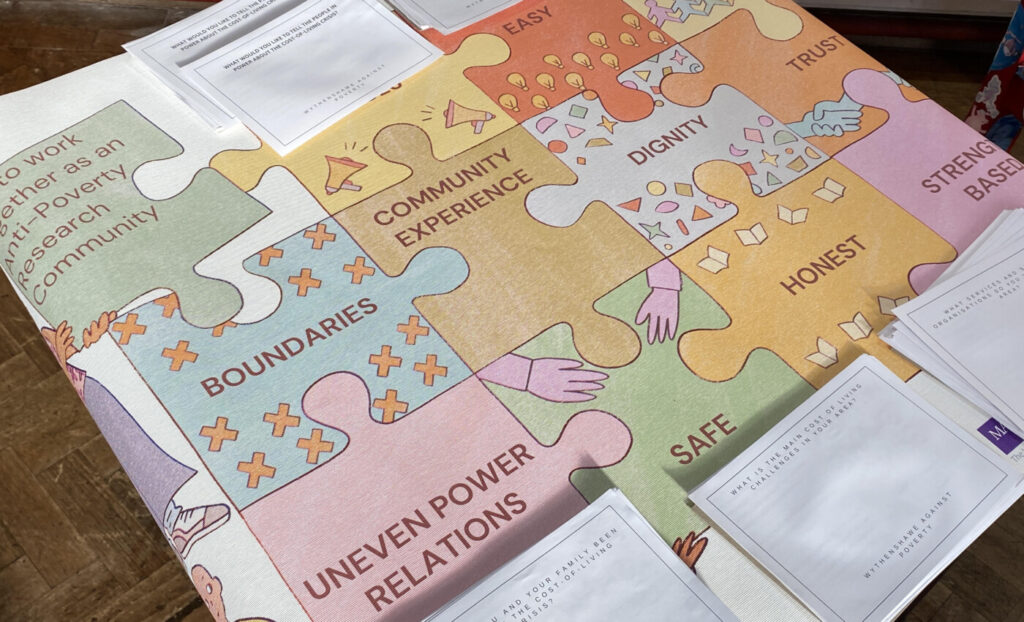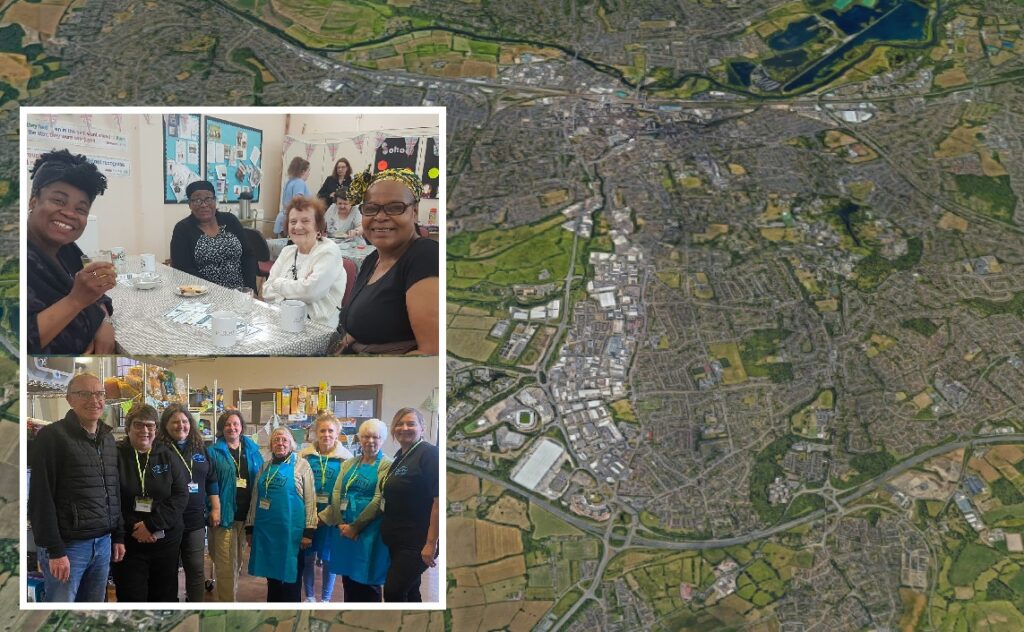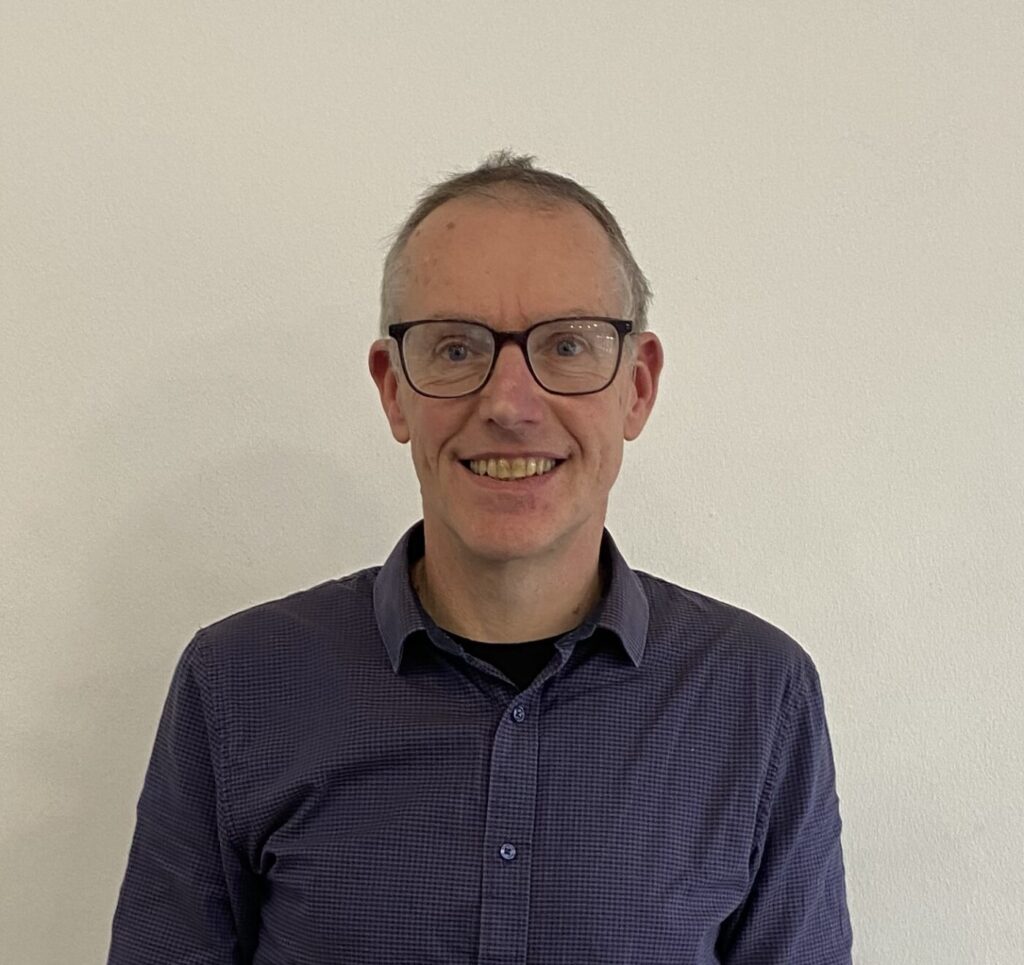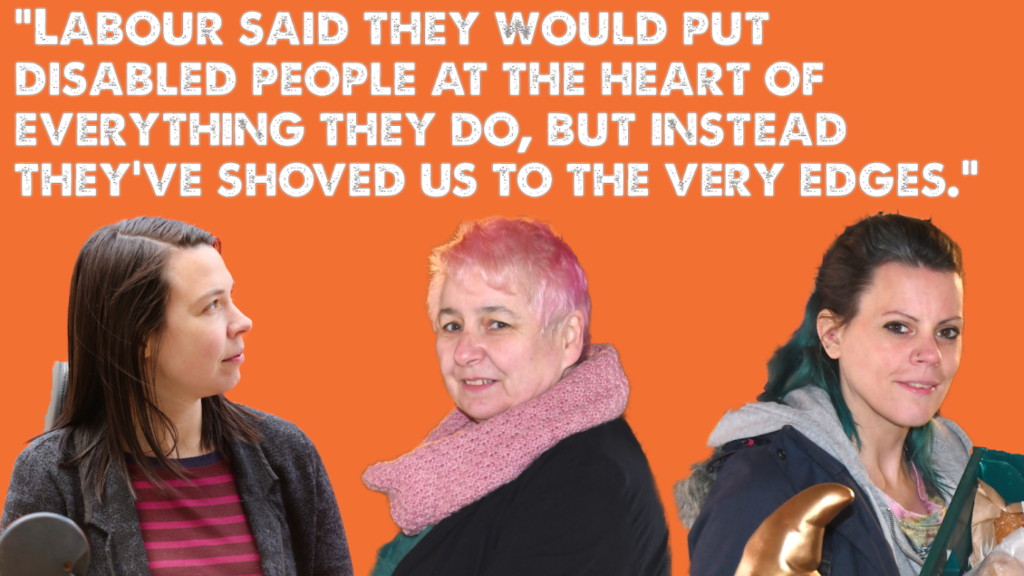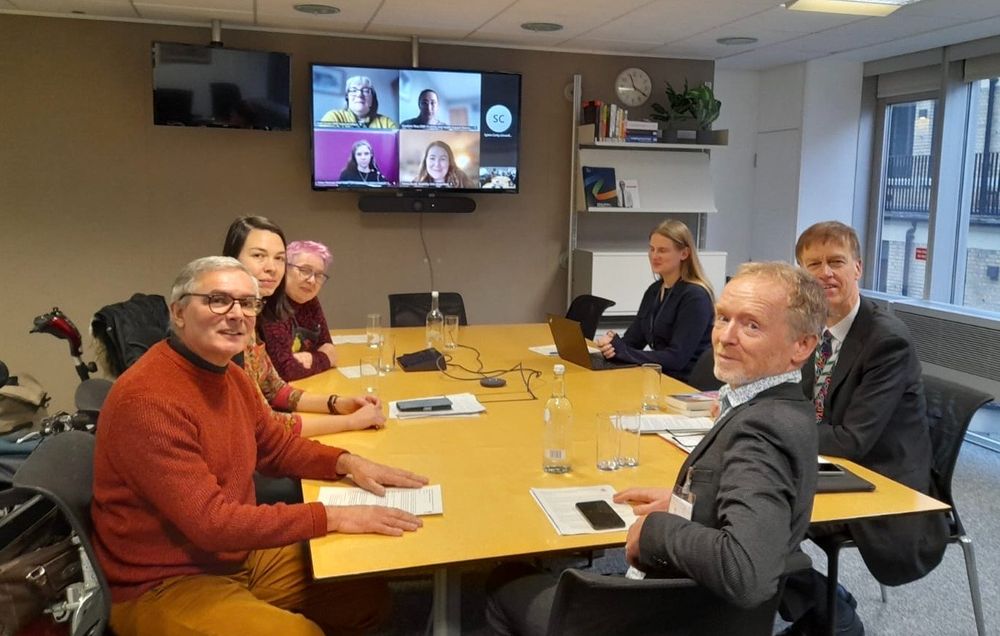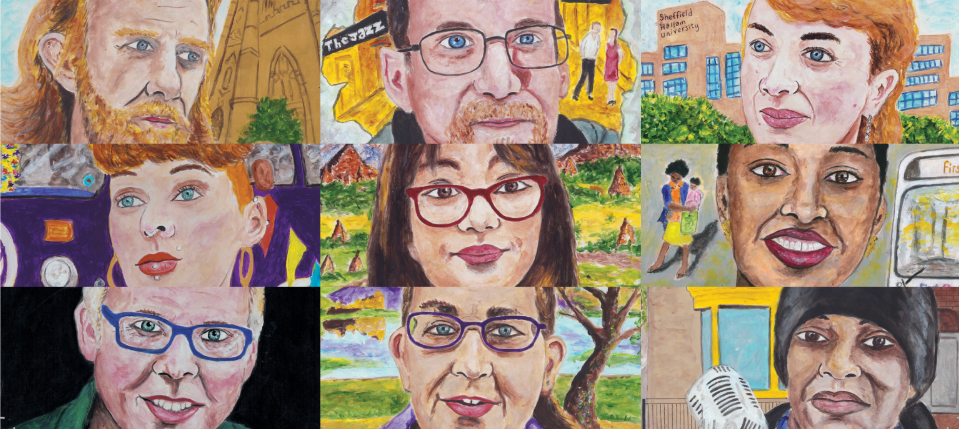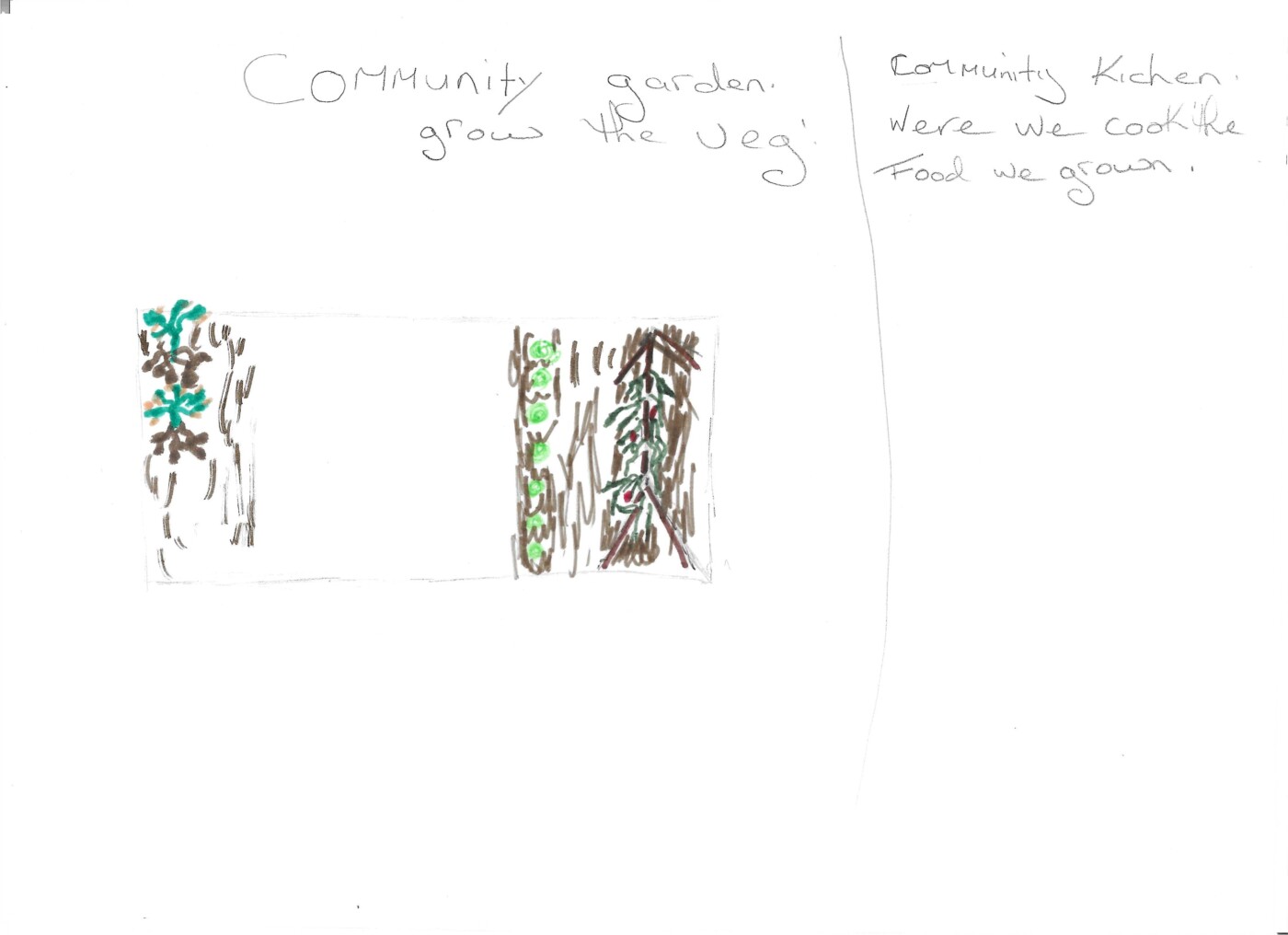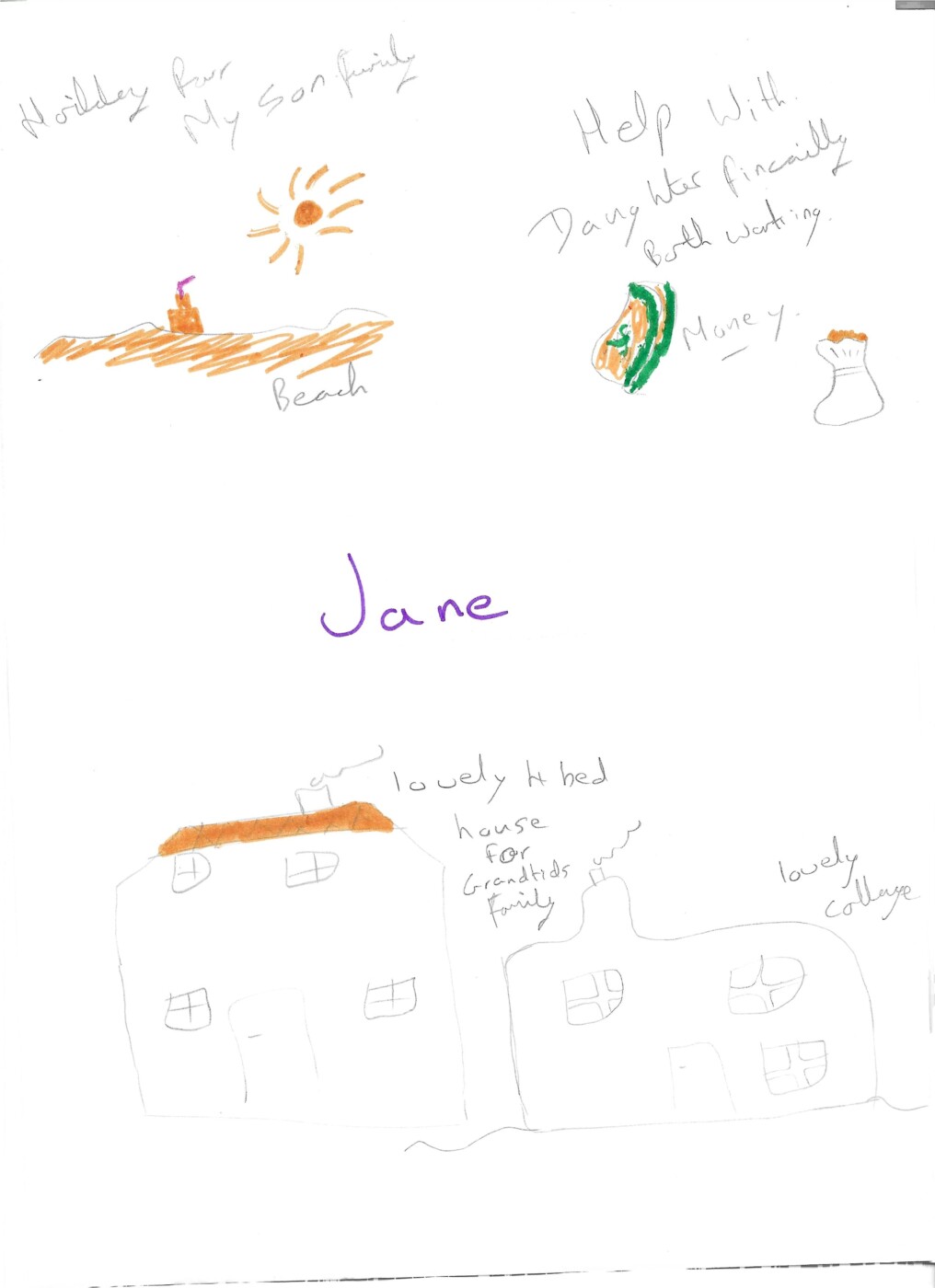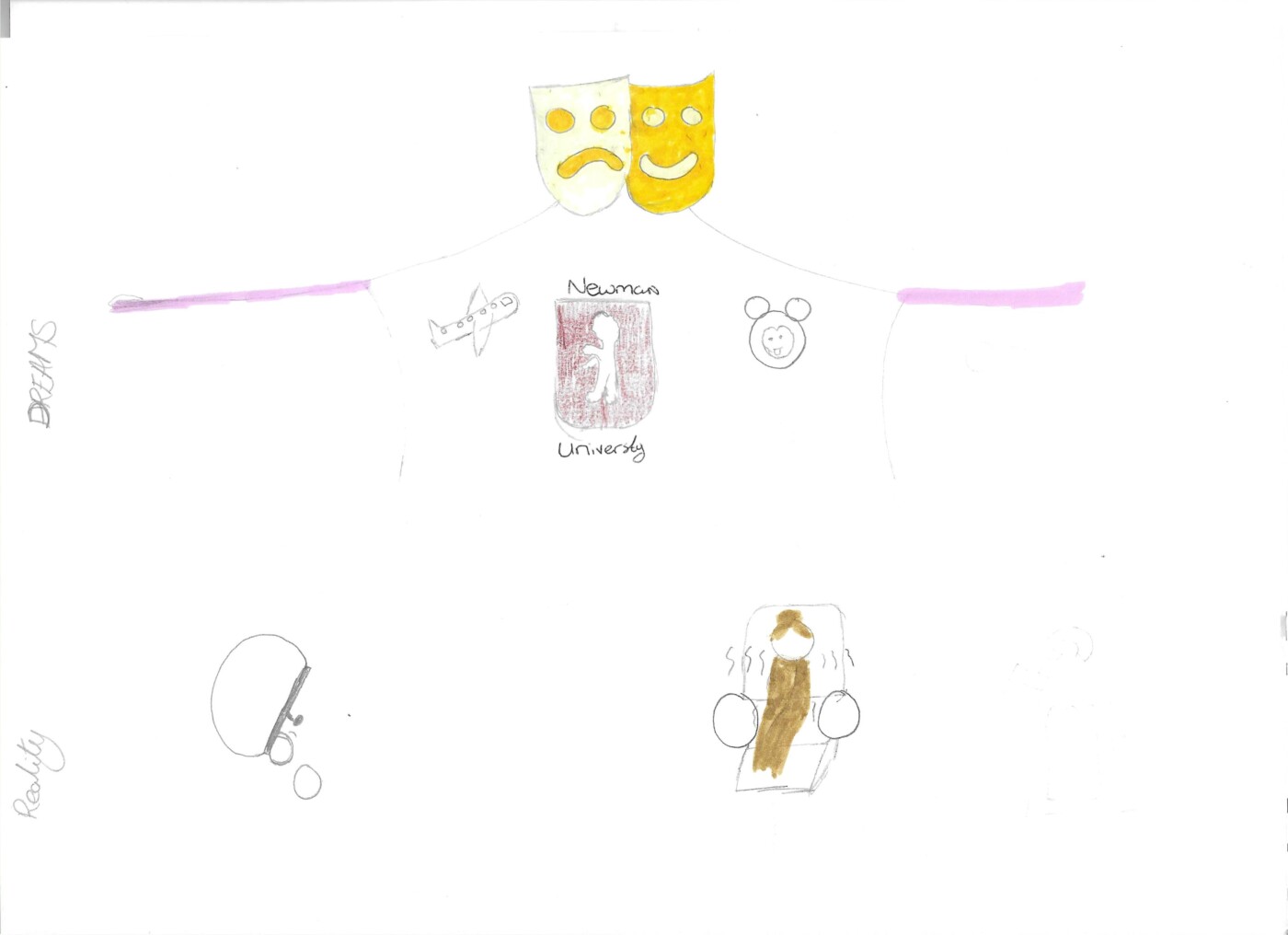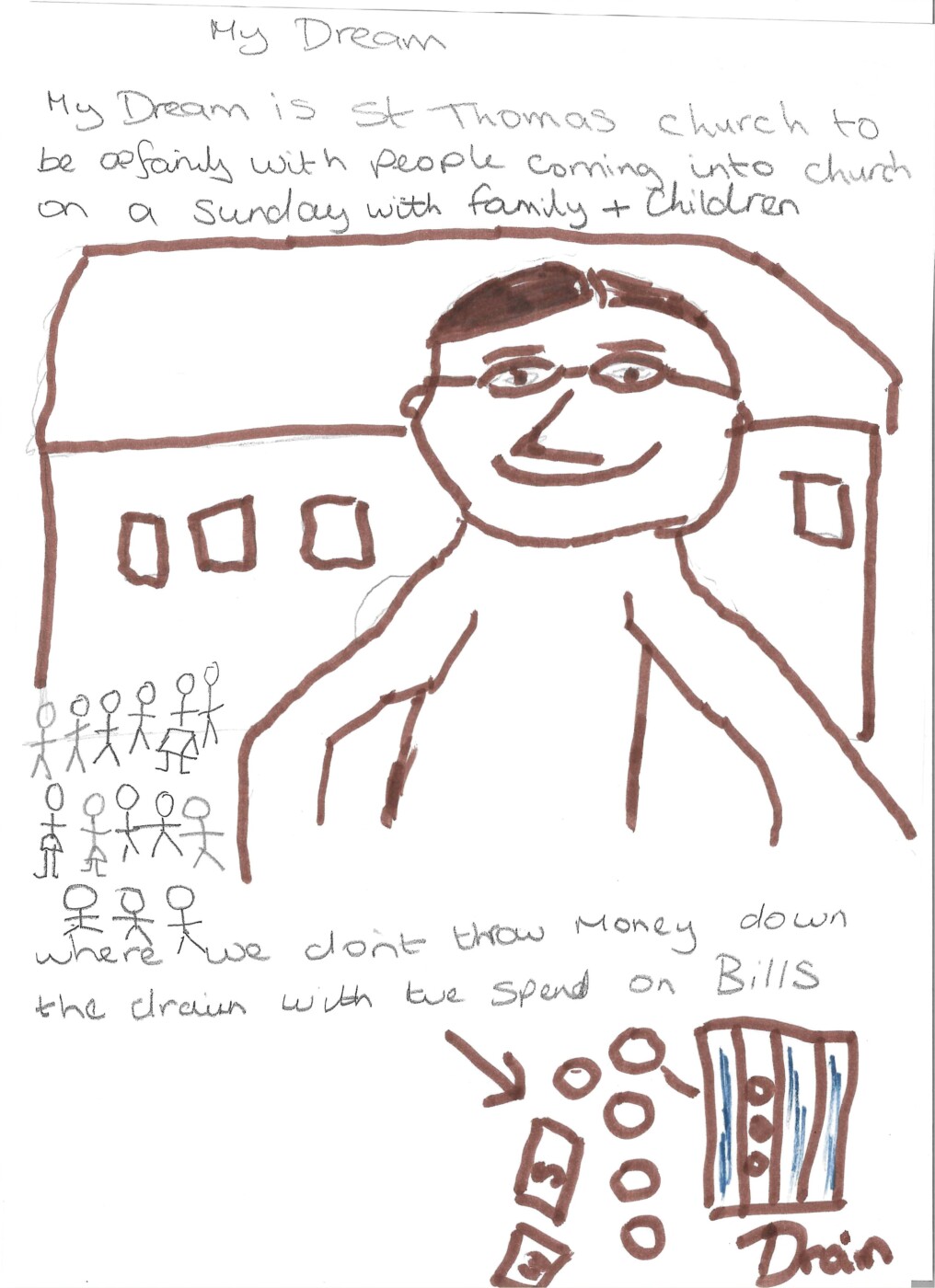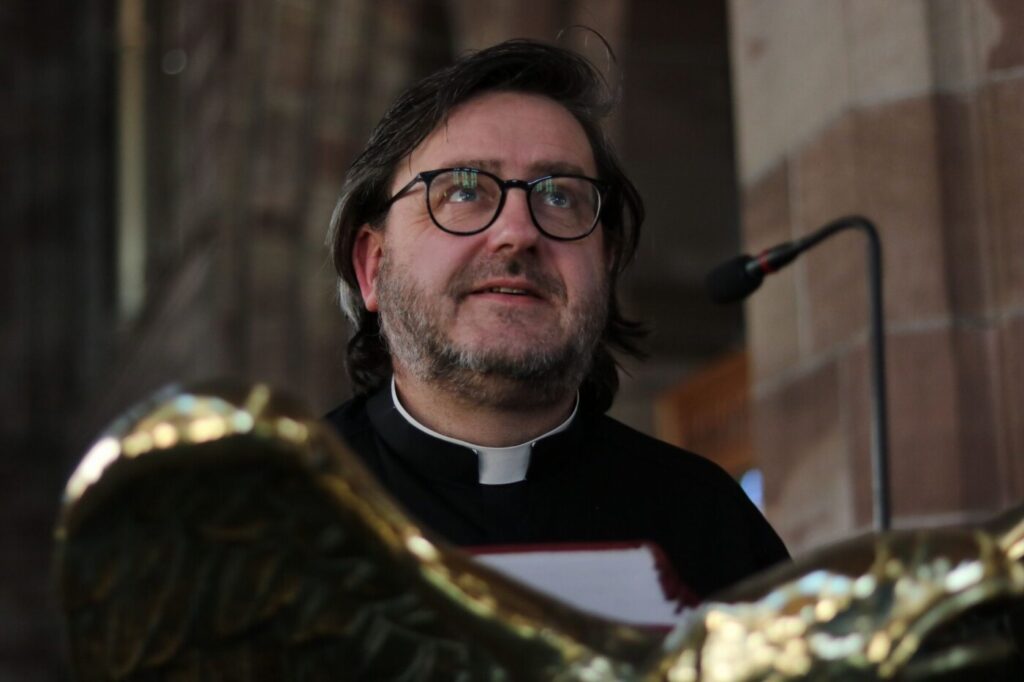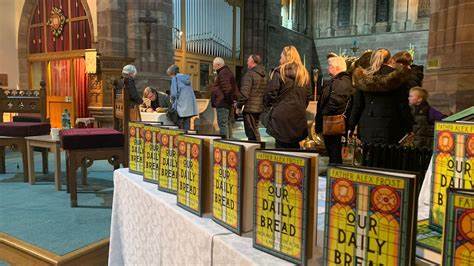Faith, justice & awesome activists: Niall reflects on his 28 years
Niall Cooper is stepping down after 28 years at Church Action on Poverty. He reflects on some remarkable highlights.

How did you first come to be involved in Church Action on Poverty?
Niall: “My university degree had been in politics and religion, and I knew that I wanted to do that work – not just study it, but to do it. My passion was how the churches could make a difference.
“I worked on a project called the Churches National Housing Coalition, in 1991. I had helped set it up and Church Action on Poverty then took it on. I was doing community work in Hulme in Manchester at the time, and housing was the main issue.
“Then a few years later in 1997, the then director Paul Goggins was selected to stand as an MP, and I was appointed as director.”
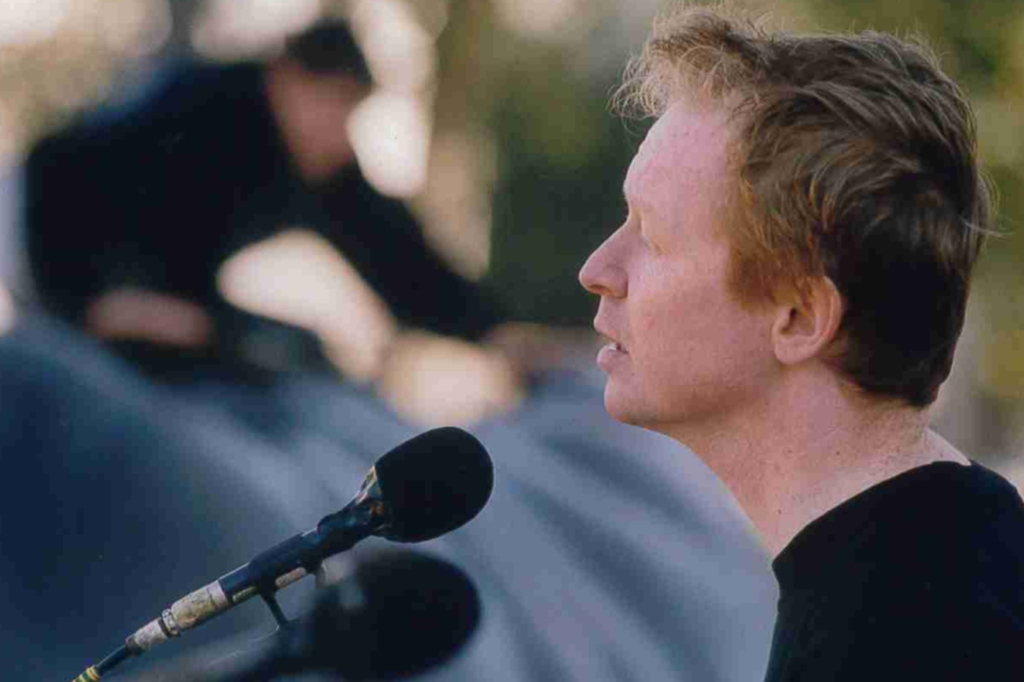
What are some of your stand-out highlights?
Niall: “I think they come into four categories:
- the big supporter moments
- the really big policy wins
- the moments of impact in local communities
- and witnessing the inspiring activism of people with lived experience of poverty.
Supporter moments
“The two big supporter moments were the Pilgrimage Against Poverty in 1999, and the Tax Justice bus tour in partnership with Christian Aid in 2013. In 1999, we organised a nine-week pilgrimage from Iona to Westminster. Six people walked the whole way, but thousands of people joined along the route, for a mile or a day or a week.
“It was a significant thing for people to be part of, a once-in-a-lifetime experience. We took a political message and it was amazing – we had a big rally in Trafalgar Square, a service in St Martin-in-the-Fields and the six people who had walked all the way met with the Chancellor, Gordon Brown.
“Then the Tax Justice Tour was amazing as well – we took a double decker bus around the country, engaging people in conversations. Both of those things really engaged people behind a powerful message, and created space for conversations.”
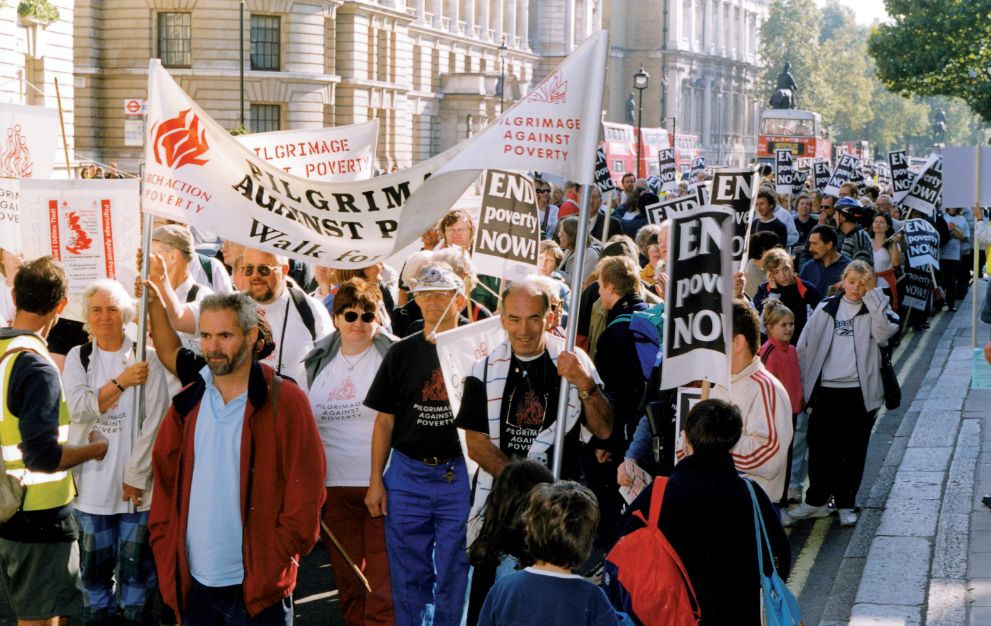
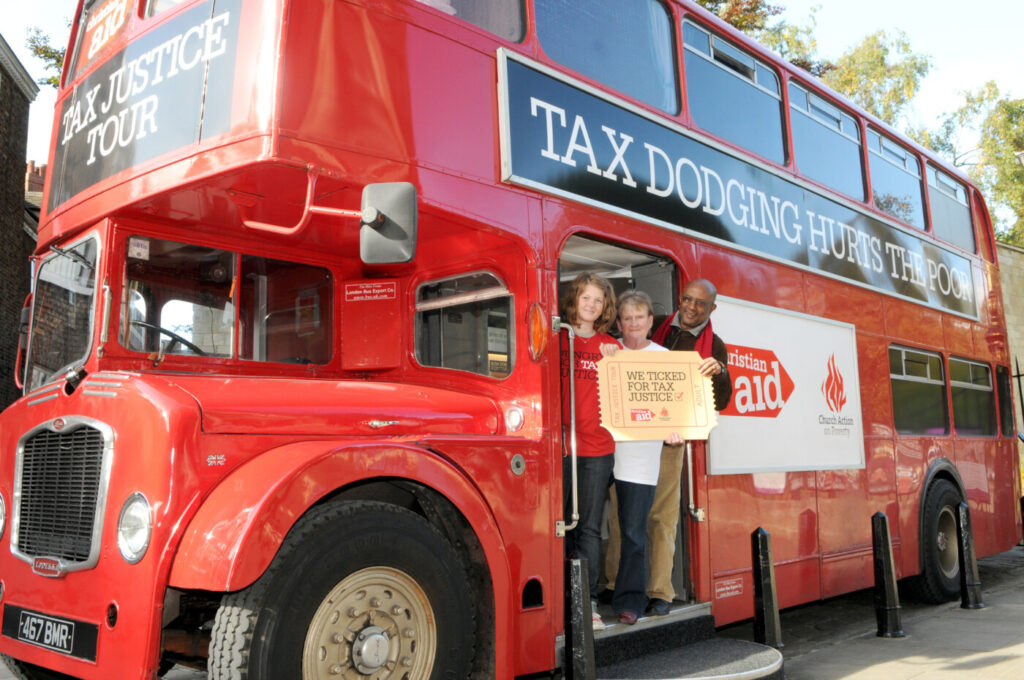
Big wins
“For big wins, I’m going to pick out two. The first was around financial inclusion work, under the New Labour government. We had meetings with a senior Treasury civil servant and we produced a report making the case for investing in affordable credit, as a result of which the Government then invested £120 million into credit unions.
“The other big win was the campaign with Thrive Teesside, around irresponsible high-cost lending. That was led by the women of Thrive over the best part of ten years, with our support.
“The Government was not initially interested, but we built up a coalition with about 80 backbench MPs, and that persuaded the Financial Conduct Authority to properly regulate high-cost lending, and as a result several million pounds in compensation was paid to customers of three main lenders. And because their business model was then broken, that really saw them off.
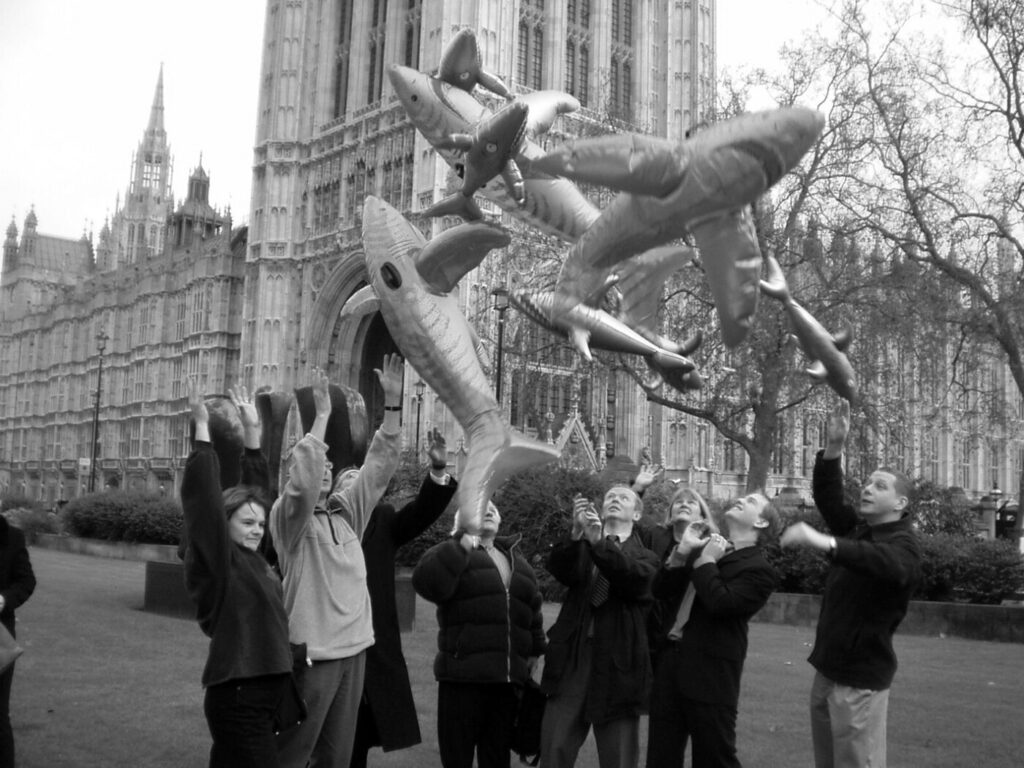
Community impact
“Along with Oxfam, we introduced Participatory Budgeting to the UK and got the Government to fund us to set up a unit that advised local government. This resulted in over 120 participatory budgeting projects in local communities around the country, each involving hundreds of people – so tens of thousands of people had a direct say in how pots of money were spent in their communities. The Scottish Government then enshrined that approach in law in Scotland.
“A second big community impact success has been Your Local Pantry. We took a very local idea and have enabled 120 communities (and counting!) to open Local Pantries, which are bringing people together through food, and enabling great things to happen. The characteristic of both of those areas of work is that they empower communities to have control and dignity and agency.”
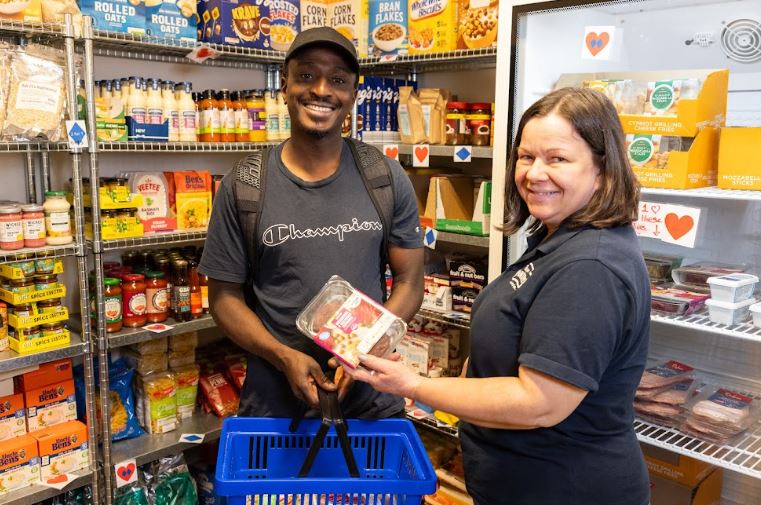
Seeing lived experience campaigners rise up
“I draw huge inspiration from activists who have refused to give up – people like Wayne Green, Sarah Whitehead and Ashleigh May.
“Wayne spoke at the first National Poverty Hearing in 1996, and is still involved now. Sarah started off as a participant in one local project and now runs Community Pride in Salford, advises Joseph Rowntree Foundation and has trained and supported lots of other people to speak up. Ashleigh [pictured below] was made homeless and moved by her council 200 miles away from her community, but has been determined to speak up and create a space for other people, using her experience as an inspiration for making change.
“There are many other amazing people I could talk about as well!”
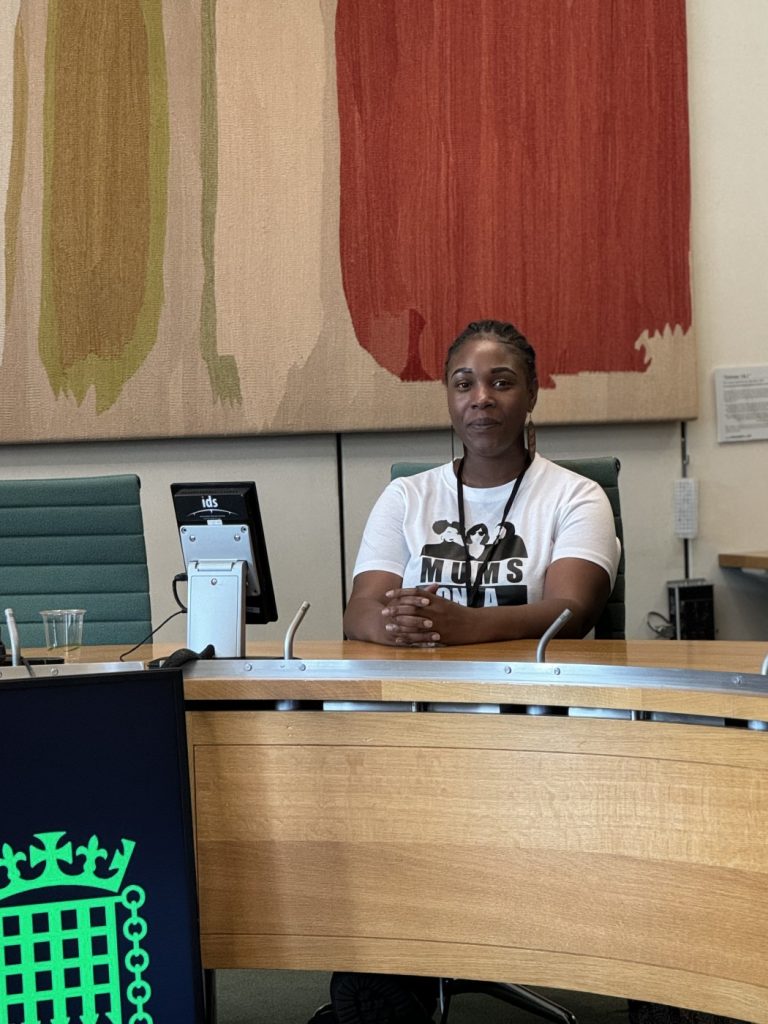
What big changes have you seen - and what hasn't changed?
Niall: “People’s belief in political solutions has shifted, and certainly the harshness of the DWP at the moment is more brutal than ever. People who don’t experience poverty do not realise just how punitive and brutal it is. That punitive nature of Government systems has got worse.
“As the state has pulled away, we’ve seen churches, charities and communities stepping up. Covid was the biggest example of that, where people stepped up. That trend has been for good and ill. Compared with 30 years ago, so many more churches are doing so much more, but there is still a pervasive attitude in places that it’s about tackling poverty one person at a time, individualising the problem and the solutions.
“One of the things that has endured is the nature of poverty. As Wayne Green said in the 1990s, “poverty is a battle of invisibility and being blamed for society’s problems”. The context has changed, but that is as true now as it was then.
“Another area where we have made strides is in the growing recognition of the importance of prioritising lived experience voices. The Dear Prime Minister letters last year exemplified that – we were able to gather 12 to 15 people, well supported by six or seven organisations around the country, and that would not have happened ten or even five years ago.”

What is your parting message to UK churches - and what are your own plans once you step down?
Niall: “The big task for churches is helping build a powerful movement in which people do feel they have agency, dignity and power, and in which they have enough allies to push back and say ‘enough; we are not going to take this any more’. Churches should invest in that, rather than sticking plaster solutions.
“As for my next steps… Well, in my 60s, I’ve started fell-running, and have just done the Yorkshire Three Peaks race, and I’ll also have some time for seeing family and travelling.
“I’m going to have a bit of a break and reflect on what I have learnt, but I am not stepping away from the anti-poverty movement. This is still what I am passionate about, and I still want to keep in touch with some of the amazing people I have met, but I also want to find out what’s the next challenge I can do.”

